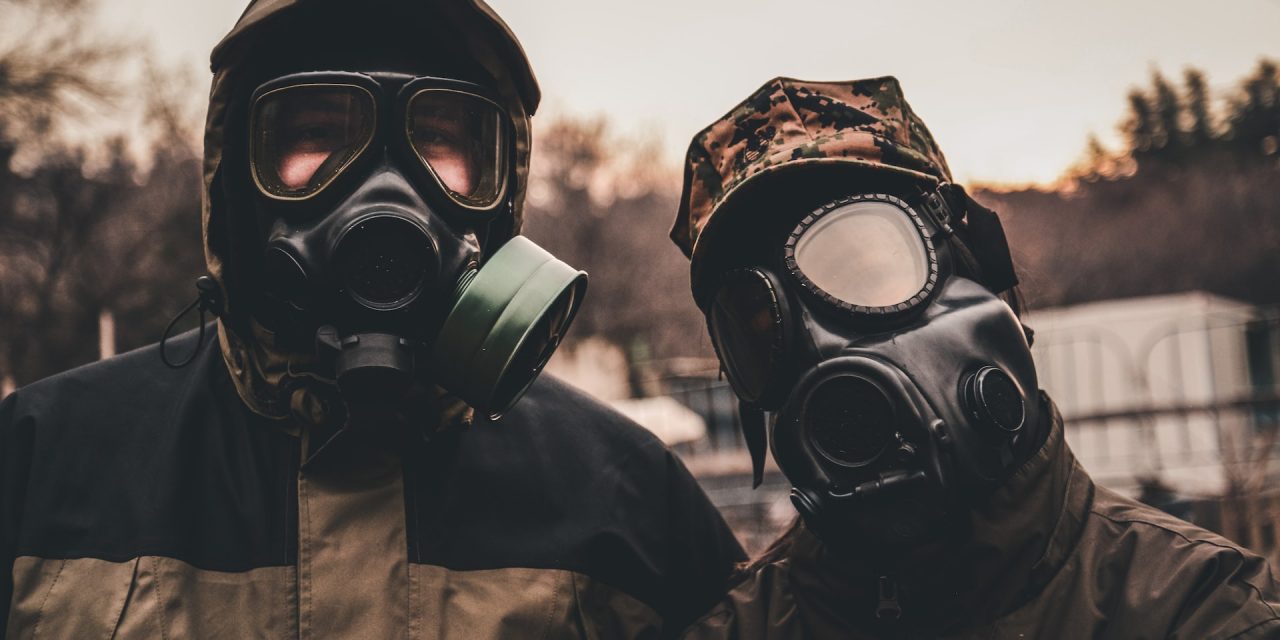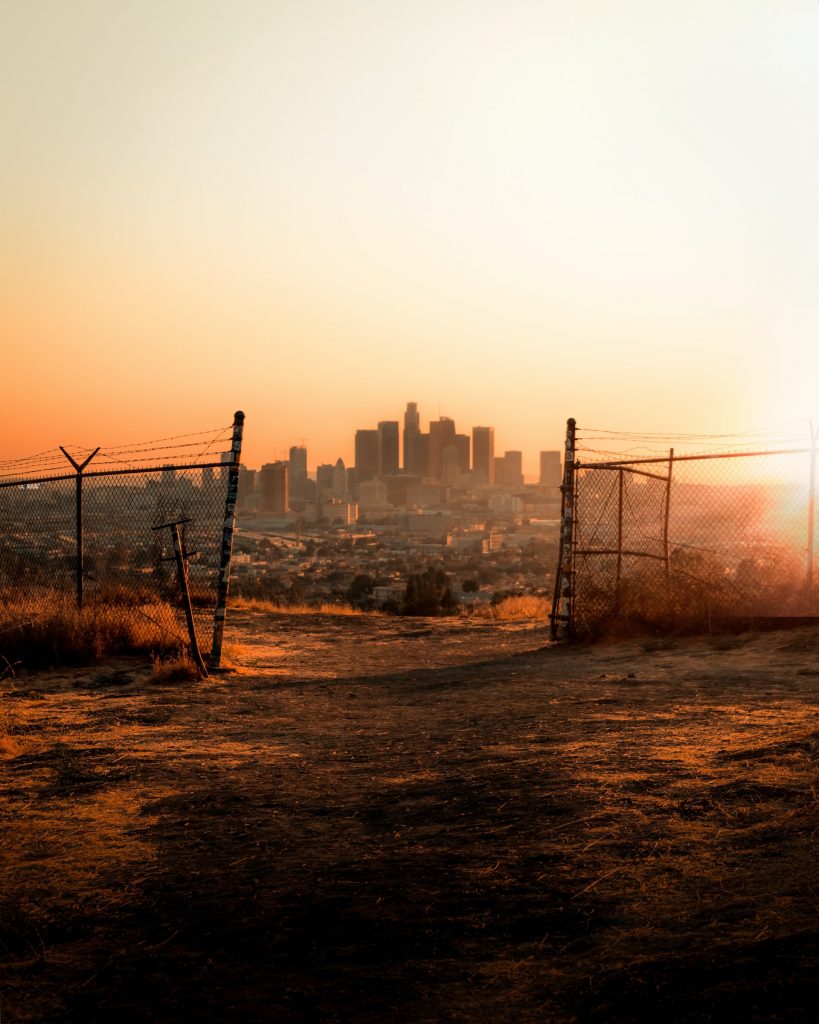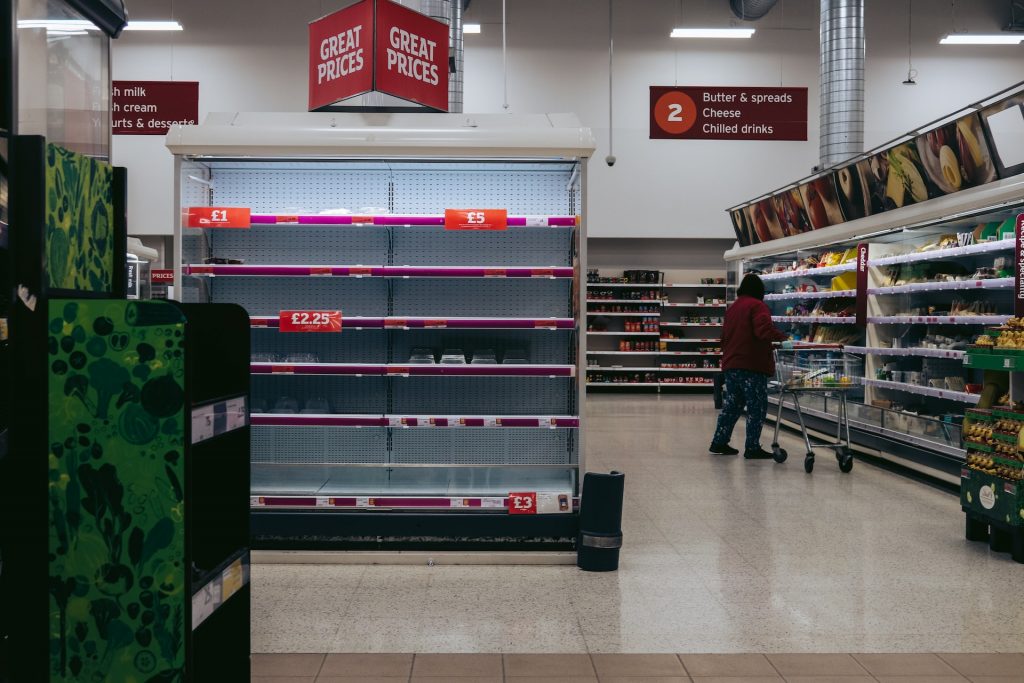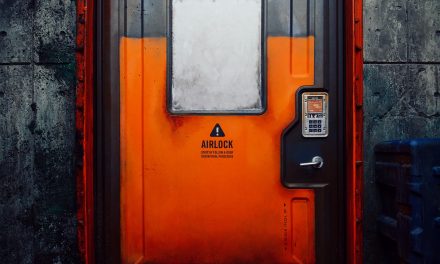For city dwellers, prepping for emergencies can seem like a daunting task. With limited storage spaces and a lack of outdoor areas, it can be challenging to know where to begin. Fortunately, there are steps that urbanites can take to ensure they’re prepared in the event of an emergency. Read on to learn how to prep in a city!
Can You Prep in a City?
Yes, you can definitely prep in a city. With the right planning and research, it is possible to have a successful prepping adventure in a bustling urban area. The key is to understand the risks associated with living in an area with high population density, such as crime and political unrest, but also be aware of the advantages of being close to resources and supplies that could aid you during a disaster.
It is important to prioritize safety when living in an urban environment by purchasing items like your home’s door locks and security systems. Additionally, having an emergency plan that includes evacuation routes from the city and sources of food and water should there be an extreme event can help ensure your survival if disaster strikes. Preparing includes ensuring all of your important documents (e.g., birth certificate, passport) are accessible in case you need to leave the city quickly and unexpectedly.
In addition to safety measures, it is also advisable to keep an eye out for items like canned goods, water storage containers, and other supplies that could be useful during a disaster. People living in cities often have limited access to outdoor spaces for long-term food storage, so having a store of non-perishable food on hand can provide peace of mind if a natural or manmade disaster occurs.
Lastly, investing in communication systems such as two-way radios or satellite phones can ensure that people remain connected in the event of an emergency. In the midst of chaos, being able to stay in contact with family and friends can be a great source of comfort.
If you have to prep in a city, it can pose unique challenges when it comes to prepping, but with the right planning, you can ensure that you are well-prepared for any eventuality. By taking safety precautions, stocking up on essential supplies, and investing in communication systems, you can feel confident that you are ready if a disaster strikes. So we prepared a detailed guide that will teach you how to prep in a city:
Make an Emergency Kit
The first step in prepping for emergencies is creating an emergency kit. It should include items such as a first aid kit, flashlights, batteries, non-perishable food items, water bottles, purification tablets, blankets or sleeping bags, and basic tools such as a wrench and pliers. Additional items like a whistle or flares may also be helpful. All these items should be stored in an easily accessible location so you can quickly gather them in an emergency.
Non-Perishable Food
In addition to food items in an emergency kit, it’s important to have non-perishable foods on hand for longer-term emergencies. Canned goods like beans and vegetables are good choices as they can easily be stored and don’t require refrigeration. Look for canned tuna or salmon, peanut butter, or protein bars for proteins. Grains such as oatmeal, quinoa, and couscous are excellent sources of nutrition that will last a long time without spoiling.
Of course, once in a while, you will have to keep track of the expiration date of your canned goods so you know what food items need to be replaced. Having a list with the expiration dates or setting a reminder on your phone can help you avoid wasting food.
Nuts and seeds are also excellent sources of nutrition and can be stored for up to a year in airtight containers. Dried fruits, such as dried cranberries or currants, can also provide vitamins and minerals. Additionally, consider stocking up on treats like chocolate bars or jerky to help keep morale high during an emergency.
My favorite go-to that you won’t ever have to worry about the expiration date is honey! An oft-forgotten food that lasts forever and is great for adding flavor to recipes. It is also extremely healthy and can be easily added to any diet.
Medicine
In addition to food, it’s a good idea to have any necessary medications on hand, especially when you prep in a city where supplies run out fast in case of a panic. This includes prescriptions as well as over-the-counter items like pain relievers and allergy medicines. It’s also essential to make sure you have enough medication for the duration of an emergency; check with your doctor if you are unsure about how much you need.
Tylenol or ibuprofen can be a lifesaver in emergencies; it’s always good to have some on hand. Additionally, if you have any medical conditions such as asthma or diabetes, make sure to stock up on your necessary medications and supplies.
Water
The first and foremost item you need to stock up on is water. Water is essential for life, and it’s important to ensure you have enough in an emergency. In a city, tap water may not always be available, so it’s wise to purchase a few gallons of bottled water or fill up containers with fresh water from a reliable source.
Water purification tablets or filters can also be great, as they will help ensure your water is safe for drinking. Still, keep in mind that if you prep in a city it can be hard to store a lot of water without somebody noticing. A few gallons of water should last you about two weeks, and it’s a good idea to check on the expiration date of your water every couple of months to ensure it is still drinkable.
If it comes to a disaster situation such as an earthquake, all-out war, or another catastrophic event, you might be able to clog the drain of your bathtub and use it to store extra water. However, make sure you keep track of the date and replace any stored water a couple of times a year, as this type of storage can get contaminated easily.
Money & Documents
It’s also important to have money in cash on hand at all times in case ATMs stop functioning. Make sure you have enough to cover your basic needs, such as food and shelter. You should also keep important documents such as passports or birth certificates in a waterproof envelope and stored somewhere easily accessible.
When it comes to an end-of-world event, money won’t mean much; therefore, valuables such as jewelry or gold coins are a great way to ensure you can trade for goods and services in an extreme emergency.
Lastly, make sure to keep a list of important contact numbers on hand in case you need them. This should include family members as well as government offices that might be able to assist in an emergency.
Warm Clothes
It’s also vital to ensure you have enough warm clothes on hand in an emergency. Having a few pieces of extra clothing that can easily be layered will help you stay comfortable and warm in any situation. Wool is great for keeping heat, so consider stocking up on some woolen sweaters or jackets.
You should also have some extra shoes and socks to assist you in an emergency. It’s also a good idea to keep a few blankets around, as they will help provide warmth and comfort during cold winter months.
I recommend that everyone prepare a single backpack with the essential items for an emergency. Such prepping might seem silly to some until they are faced with a real emergency and do not have what they need to survive. By stocking up on the items above, you can rest assured that you will be ready for whatever life throws your way.
Evacuation
Know Your Building’s Emergency Plan
Most buildings already have an emergency plan; it’s essential to familiarize yourself with your building’s plan so you’re aware of what you need to do if something happens. Knowing evacuation routes and exits is especially important as this will help ensure everyone stays safe during an emergency situation. You should also make sure all household members are aware of the plan and that everyone knows where the designated meeting spots are located outside the building.
Check Out The Roof
Checking out the roof beforehand can be beneficial in the event of a flood or similar event in which you will be kept from leaving your building, as this will provide you with an alternate exit if necessary. Knowing how to access the roof and which ladders or staircases could be used can help to save valuable time during an emergency situation. If you are forced to stay in your building for extended periods of time, the roof can also be used to store supplies such as food, water, and first-aid kits.
The roof is also great for signaling for help during a crisis. Keep a flashlight, flares, and a whistle handy for emergency signaling if needed. Additionally, if you prep in a city with a lot of rainfall, make sure you know how to collect water, as it can be a valuable resource in difficult times. If you opt for this water collection route, ensure to cook it first and filter it safely.
Prepare an Evacuation Plan
Having an evacuation plan in place is important. This means deciding ahead of time where you will go if an emergency arises and making sure everyone knows the route they should take to get there safely. If possible, it may be a good idea to have a few alternate routes in case the first one becomes blocked or inaccessible.
The elevator, for example, is a no go in the case of a power outage or an earthquake, so make sure you have a way out of the building. Your evacuation plan should also include details such as what supplies to take, where to meet up with family members, and how to contact each other in case of separation.
Also, be careful when evacuating through the stairwell since your whole building will be trying to get out at the same time. Keep alert and close to the walls since falling down and getting trampled are real dangers.
Have a Route Planned Out
If you plan to evacuate your city, it is important to plan the route beforehand. This ensures that you know exactly how to get where you’re going without getting lost or having to stop along the way. It is also a good idea to make sure your vehicle has enough gas and supplies in case of an emergency on the road.
Make a mental map of what route most people will take out of the city, so you have an idea of the potential traffic and delays that may arise. Also, be sure to check on road closures or any other obstacles that could halt your evacuation.
Additionally, try to map out a few alternate routes just in case one of them becomes blocked or inaccessible. Knowing some back roads can be beneficial if there is a lot of traffic due to other people evacuating at the same time.
Know Your Neighbourhood
Getting to know your neighborhood and the surrounding areas is important when you prep in a city. Knowing where the local police station, fire station, hospitals, and shelters are can also be useful in an emergency situation. Additionally, familiarizing yourself with any nearby parks or open spaces can help provide moments of refuge if needed.
Also, ensure you keep a map of the area handy for navigation during an evacuation. Maps provide more reliable navigation than GPS since they work even when electricity is out, and cell towers are down.
Know Thy Neighbor
Having a mental map of who lives around you can also be helpful in a time of crisis. Knowing which residents have access to medical supplies, have cars, or have expertise in areas such as first aid or mechanics can be handy if needed.
It is also important to build relationships with your neighbors so that everyone looks out for each other and knows who’s reliable. Having a good rapport with them will help in the event of an emergency since they will likely be able to provide assistance if needed.
Communication Is Key
It’s essential that you stay informed during any emergency situation; this means having easy access to reliable sources of information like radio stations or local news channels (you may even want to consider downloading news apps).
Additionally, make sure all family members have each other’s contact information stored somewhere easily accessible (a list taped inside the pantry is always a great option). This way, you can check on each other if communication lines are disrupted due to power outages or cell tower damage.
Self Defense
In some cases, self-defense may become necessary in the case of civil unrest or riots. Consider taking a self-protection class and knowing your legal rights when it comes to defending yourself and your home. A handgun should be a bare minimum for protection, and make sure to store it in a discreet, secure place. Even better if you have the money and space to store a shotgun.
Stun guns, pepper spray, and tasers can also be helpful in a pinch. Furthermore, having knowledge of basic martial arts techniques such as judo or krav maga can help if ever you’re faced with an attacker.
Your overall fitness should also be a priority. Medium-length runs, push-ups and pull-ups, and even squats and lunges are all good exercises to maintain a certain level of physical prowess. This could help you keep up with an ever-evolving situation if it were to arise.
Prepping Your Apartment
Additional Door Stoppers & Locks
One of the most basic things you can do while you prep in a city is to increase your apartment’s security is to add additional door stoppers or locks. You may think that the existing locks are sufficient, but it never hurts to have an extra layer of security. There are a variety of door locks available for purchase online or at many home improvement stores. Additionally, consider adding a door stopper block or wedge to keep doors securely closed when not in use.
You can always push a heavy object, such as a couch, in front of the door if needed. Other traditional items like a steel rod or wooden plank can also be used to barricade the door from intruders.
Make Your Windows Shatter Proof
Windows are often overlooked when considering home security, but it should be given special attention due to its potential vulnerability. Adding shatter-proof glass film is an inexpensive and effective way to make sure that burglars or intruders can’t easily break into your windows. The glass film prevents the glass from shattering and holds it together if someone were to attempt to break into your home through the window. Additionally, consider reinforcing more vulnerable windows with double-paned glass, as this will make them much harder to break through.
Be Quiet
If you have a reason to suspect someone is trying to access your apartment, it can be helpful to remain quiet and not draw attention to yourself. This includes keeping any loud noises from coming from within the apartment, such as music or footsteps. Additionally, if you are in a situation where it is necessary to leave the apartment and feel unsafe about doing so, try to take a route that is least likely to be noticed by potential attackers.
Cover Your Doors and Windows
In case you want to keep hidden and protect yourself from prying eyes, try to cover up the windows and door with thick fabric or heavy curtains. This will help keep any light from escaping out into the night, making it more difficult for people outside to tell that someone is inside and potentially make them less likely to attempt breaking in. Additionally, if you are concerned about intruders peering through your windows in search of potential loot, blackout curtains can effectively prevent this. This can be quite easy when you prep in a city, as you will have a lower chance somebody notices your window first.
Additionally, you can put some towels under your entrance door to prevent any light from escaping outside your apartment from entering your apartment. This will help to further disguise that someone is in the apartment and potentially make it less likely for an intruder to attempt breaking in.
Batteries and Candles
If your electricity goes out and you’re stuck in the dark, having some batteries or candles on hand can be a lifesaver. It’s always good to have extra batteries for flashlights, radios, and other devices that could come in handy if an emergency situation were to arise. Additionally, having a few candles around is also helpful as they can provide light and warmth without the need for electricity. Just be sure to keep them away from flammable objects!
Prepare a Bug-Out Vehicle
For those who want to be ready for any disaster, having a bug-out vehicle is an essential part of their preparedness plan. A bug-out vehicle (BOV) is a vehicle that is specifically designed and equipped with the necessary supplies to help you and your family survive in case of a natural disaster or other emergency situation.
Choosing the Right Vehicle
The first step in building the perfect BOV is choosing the right vehicle. It needs to be rugged enough to tackle any terrain yet reliable enough to get you where you need to go with minimal maintenance and repairs. Popular choices include pick-up trucks, vans, SUVs, and 4x4s. The choice ultimately comes down to personal preference and budget, so take some time to research different models before making your decision.
Picking a reliable SUV/pick-up, such as a Toyota or Jeep, may be a wise decision, as these models are well-known for their ability to handle tough terrain and hold up in extreme weather conditions. Equipped with the right supplies, they can also act as a mobile home, providing shelter and transportation when needed.
Essential Equipment
Once you’ve chosen your vehicle, it’s time to equip it with all the essentials you’ll need to survive an emergency. This includes items such as food, water, medical supplies, tools, and clothing. You should also ensure that your BOV has extra fuel tanks or jerry cans filled with gasoline in case you need them during an extended journey. Additionally, make sure that your BOV has basic repair parts such as spare tires, spark plugs, and oil filters on board just in case something goes wrong while you’re on the road.
Safety Equipment
Finally, safety should always be top of mind when building a BOV. Make sure that your vehicle is equipped with proper seatbelts for each passenger, and ensure that everyone knows how to operate them properly before setting off on any journey since you might have to drive aggressively to avoid dangerous situations.
Additionally, if your BOV is going off-road, it should have some winch or tow strap for getting unstuck from muddy or rocky terrain quickly and safely. Other important safety equipment includes fire extinguishers, flashlights, and first aid kits – all of which should be easily accessible when needed.
Conclusion
Prepping isn’t only for those who live in rural areas. People have to learn how to prep in a city to be aware of the dangers of urban life and prepared for anything. With well-stocked supplies, a plan in place, a safe apartment, and a reliable bug-out vehicle, you can stay safe in the event of any disaster – no matter where you live.












